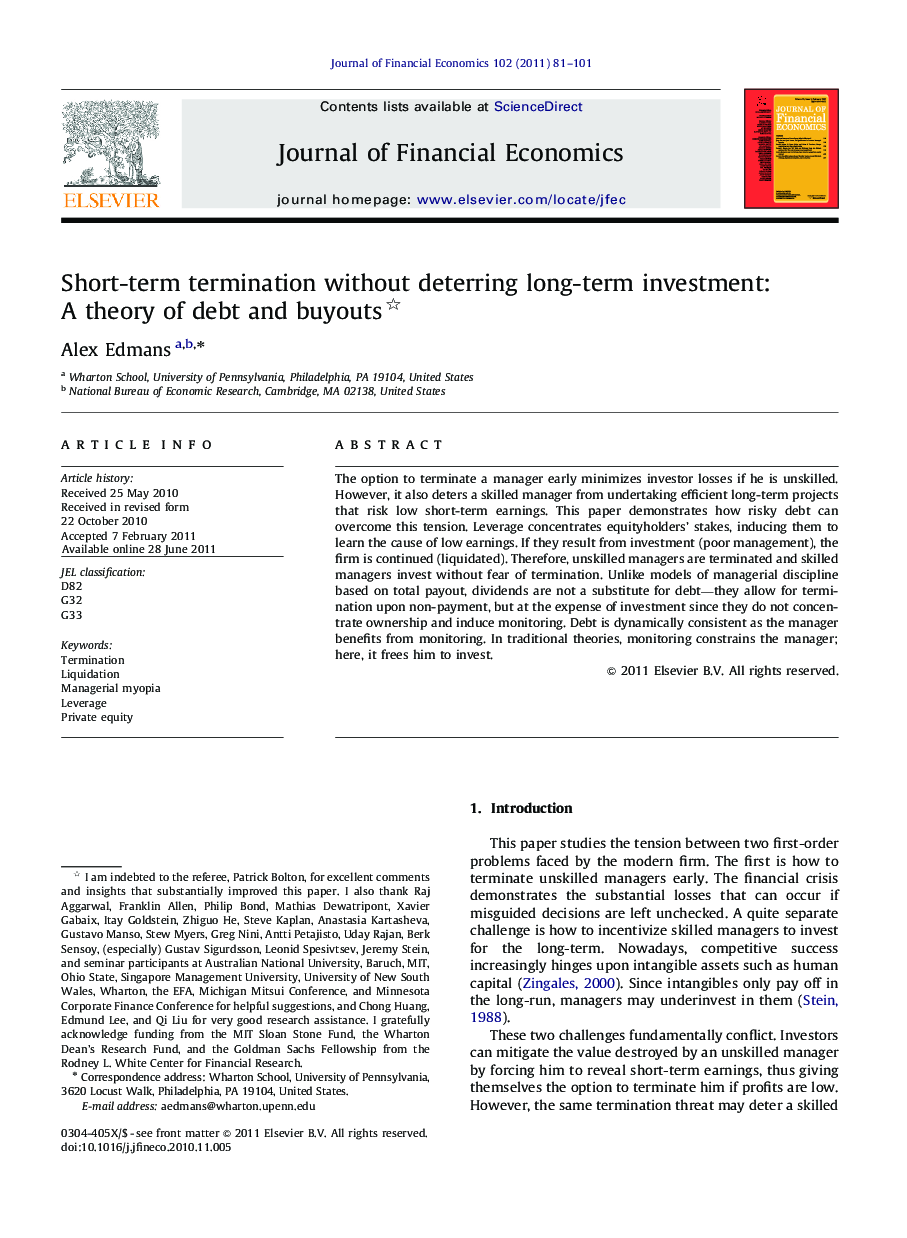| Article ID | Journal | Published Year | Pages | File Type |
|---|---|---|---|---|
| 959641 | Journal of Financial Economics | 2011 | 21 Pages |
The option to terminate a manager early minimizes investor losses if he is unskilled. However, it also deters a skilled manager from undertaking efficient long-term projects that risk low short-term earnings. This paper demonstrates how risky debt can overcome this tension. Leverage concentrates equityholders' stakes, inducing them to learn the cause of low earnings. If they result from investment (poor management), the firm is continued (liquidated). Therefore, unskilled managers are terminated and skilled managers invest without fear of termination. Unlike models of managerial discipline based on total payout, dividends are not a substitute for debt—they allow for termination upon non-payment, but at the expense of investment since they do not concentrate ownership and induce monitoring. Debt is dynamically consistent as the manager benefits from monitoring. In traditional theories, monitoring constrains the manager; here, it frees him to invest.
► I study how to both induce long-term investment and allow short-term termination. ► Debt alleviates this tension by inducing shareholders to learn the cause of losses. ► If they result from investment (bad management), the firm is continued (liquidated). ► Unskilled managers are terminated, skilled ones invest without fear of termination. ► Debt is dynamically consistent as the manager benefits from monitoring.
